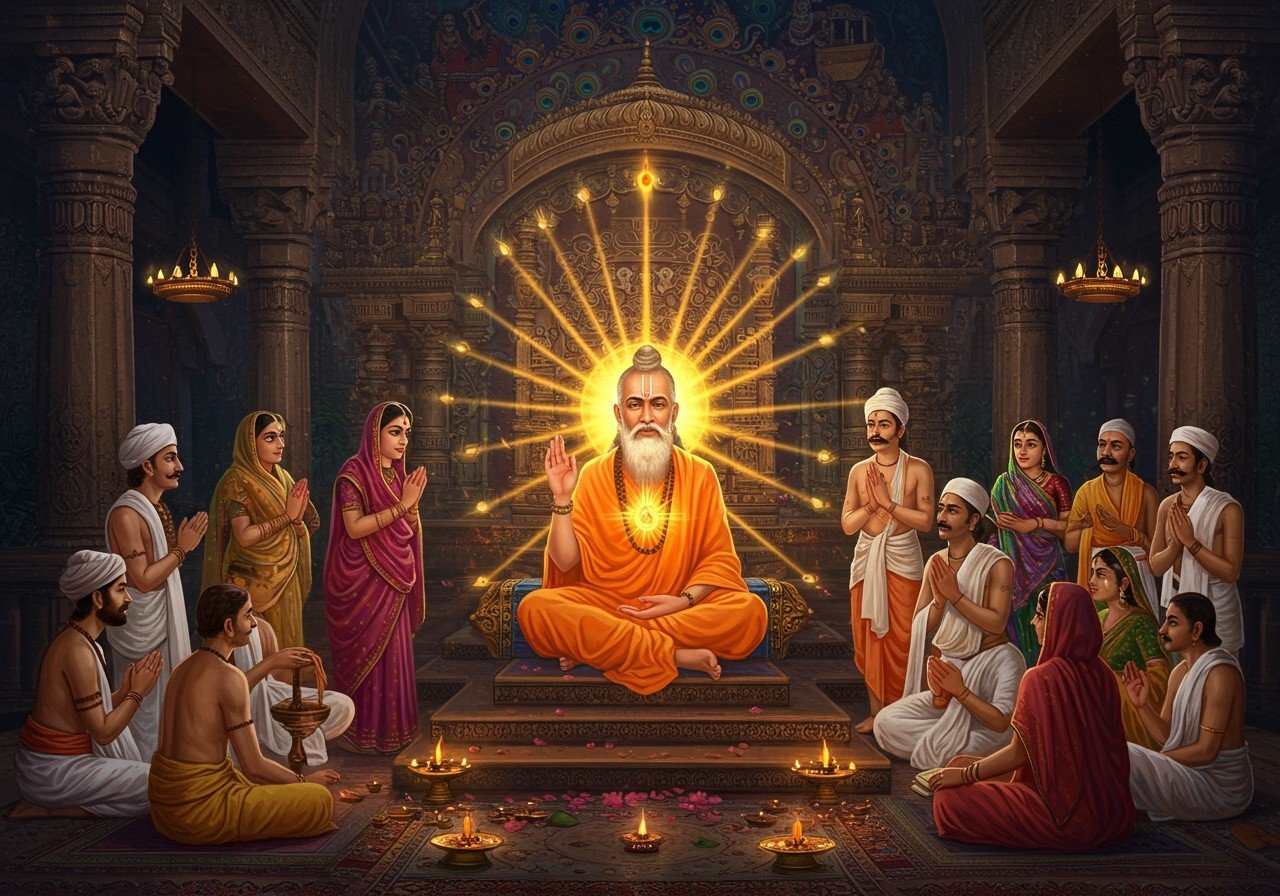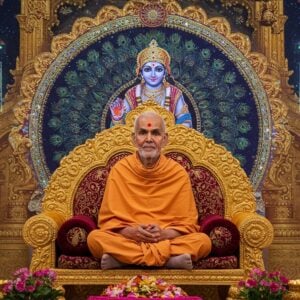
The Bhakti movement, a profound religious and social reformation spanning from the 7th to the 17th centuries, significantly impacted medieval India. It emphasized a personal connection with the divine through love and devotion (bhakti) as the path to spiritual enlightenment. This challenged the prevailing social and religious norms of the time, offering a new perspective on spiritual practices.
Ramananda: A Pioneer of Devotion and Equality
Ramananda, a revered Bhakti saint, revolutionized spiritual practices by prioritizing devotion to God over traditional rituals. Born in a time of rigid societal norms, Ramananda’s journey began with a shift from established Hindu practices to a more inclusive form of worship. His teachings emphasized the universal nature of God’s love, transcending caste and social hierarchies. This radical inclusivity opened spiritual doors for marginalized communities, empowering individuals regardless of their social standing.
Explore the path of Bhakti Yoga further in our dedicated blog post.
The Spread of Bhakti Across India
Ramananda’s influence radiated across North India, attracting a diverse following. His disciples, including the renowned poet-saint Kabir, further amplified his message of universal love and devotion. Kabir’s poetry challenged religious orthodoxy, drawing inspiration from both Hindu and Islamic traditions to promote spirituality beyond boundaries. His words continue to resonate, inspiring social justice and unity, reflecting the core ideals of the Bhakti movement.
Discover the significance and history of Lord Shiva temples in Maharashtra.
The Bhakti Movement’s Impact and Legacy
The Bhakti movement, with leaders like Ramananda at its forefront, confronted deeply entrenched social norms. It defied caste discrimination, advocating for spiritual equality and democratizing religious experiences. This shift empowered individuals to directly engage with spirituality. Women, often marginalized in traditional settings, found a voice within this movement, gaining agency and recognition.
The movement’s impact extended to art and literature, inspiring devotional poetry and music that continue to flourish today. Bhakti-inspired practices, such as devotional singing (bhajans), remain central to Hindu worship, fostering community and spiritual unity. Ramananda’s teachings and the broader movement continue to influence modern Indian society, promoting equality and spiritual growth.
Delve into the history, significance, and rituals of the Kopineshwar Mandir.
Connecting with the Bhakti Movement through Poojn.in
Poojn.in provides a tangible link to the Bhakti movement’s legacy through a curated selection of sacred items. The Mayapuri Bhagwa Namavali, a traditional item symbolizing the core values of the Bhakti tradition, enables you to integrate devotion into your daily life and connect with Lord Krishna’s teachings. We also offer other sacred items for your spiritual practices. Explore our Durga Puja kit and Laddu Gopal murti to enhance your devotion. Poojn.in ensures the authenticity and respectful handling of these sacred items, delivering them securely to your doorstep across India.
Embracing Ramananda’s Enduring Legacy
Ramananda’s teachings resonate through time, guiding us towards love, equality, and devotion. His message of universal love transcends social barriers, reminding us that spirituality welcomes all. By embracing inclusivity and compassion in our spiritual journeys, we carry forward his legacy. Through devotional practices like bhajans, we connect with the timeless spirit of the Bhakti movement, fostering unity and community. Explore our collection of Maa Manasha murtis to deepen your connection.
In a world often divided, Ramananda’s teachings offer a beacon of hope. By cherishing his legacy, we strive for a deeper connection with the divine and with one another.
Discover the entrepreneurial story of Sarvamangla, rooted in Hindu values.
Understanding the Bhakti Movement and Ramananda
What defined the Bhakti Movement? The Bhakti Movement, flourishing between the 7th and 17th centuries, emphasized personal devotion (bhakti) to a deity as the path to spiritual enlightenment. It promoted accessibility to spiritual practices for individuals from all backgrounds, regardless of social standing, challenging established social and religious norms. This emphasis on a direct, personal relationship with the divine simplified religious practices. The use of vernacular languages further broadened accessibility, fostering a more inclusive and egalitarian spiritual landscape.
Who was Ramananda, and what was his role? Ramananda, a prominent Bhakti saint, championed devotion to God over ritualistic practices. He emphasized a direct, personal connection with the divine, transcending societal barriers like the caste system. His teachings of universal love and equality resonated with people from all walks of life, especially those marginalized by traditional social structures. His influence extended across North India, attracting a diverse following and significantly shaping the Bhakti movement’s trajectory.
How did Ramananda influence the Bhakti Movement? Ramananda’s teachings profoundly impacted the Bhakti Movement by emphasizing personal devotion and equality. He actively challenged traditional social hierarchies, fostering inclusivity and making spiritual practices accessible to all. His focus on love and devotion over rituals resonated deeply with people, fostering a sense of unity and shared spiritual experience. His influence extended through his disciples, like Kabir, who carried forward his message and contributed to the movement’s widespread impact.
Explore our collection of Srimad Bhagavad Gita, a cornerstone of Bhakti philosophy.


